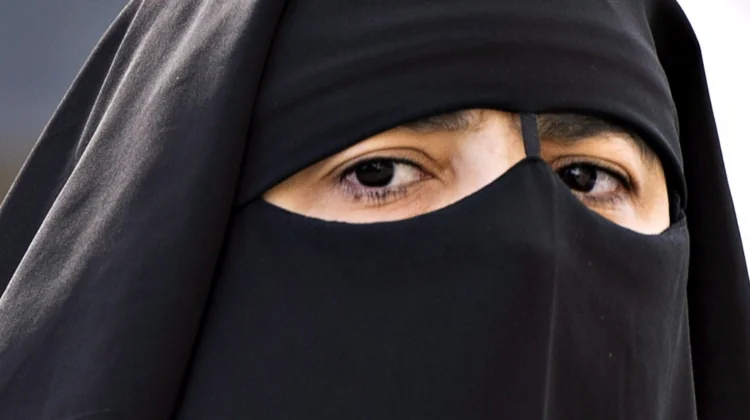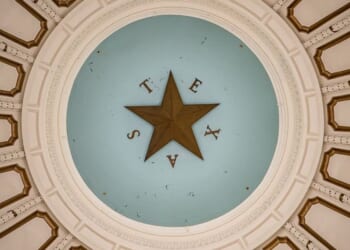
“Chilling”. “Racist”. “Upends Lives.”
Those are some of the attacks on Quebec’s Bill 21 and the province’s report on secularism in public spaces. What’s so horrifying about them? The crucial issue is once again the burka.
When the process first got underway in the previous decade, the media flipped the issue on its head and claimed that a burka ban would keep Muslim women from participating in public life.
But how does anyone participate in ‘public life’ if their faces are almost entirely covered?
The bill does not, as the media claimed, set out to ban Islam, it stated that government workers, teachers and other people providing public services had to have ”their face uncovered” and people applying for public services “must have their face uncovered when doing so is necessary to allow their identity to be verified or for security reasons.” And even that is too much to ask.
How is a government employee supposed to know that a voter or someone applying for public aid is who she says she is if that employee can’t actually see her face to verify her identity?
And how is someone supposed to function as a teacher if their students can’t see her face is also a question that was asked by the secularism report. “Teaching relies by definition on communication and covering the face and body excludes non-verbal communication,” it notes. “One of the teacher’s missions is to contribute to the development of the student’s sociability. It seems reasonable to think that the wearing of a full-body veil establishes too great a distance between the teacher and her students.”
Farida Mohamed of the Canadian Council of Muslim Women, who wears neither a burka nor a hijab, claimed that banning burkas in daycare was an attack on Muslim women because a lot of the care workers are actually Muslim women who are veiled.”
Even beyond Islam’s brutal Sharia apartheid, COVID masking provided a good deal of data that showed masking traumatizes children and delays their social development. Day care employees who insist on wearing face coverings are putting their needs at the expense of the children they are supposed to be caring for. And the same is true for all employees wearing burkas.
If someone is unwilling to interact face to face with children or the general public, they shouldn’t demand that they be allowed to hold down a job that they have announced their unwillingness to do.
“We feel that our rights are violated. The economic freedom of Muslim women is being violated,” Mohamed stormed.
At Human Rights Watch, an activist complains that “Quebec’s ban will isolate women by pushing them out of public life” by banning niqabs and burkas. But how can anything isolate women more than a burka or a niqab’s requirement that they isolate themselves? Some niqabs even come with flaps so that not even the eyes of the woman wearing it are visible.
Demanding both burkas and working outside the home is a contradiction in terms. The whole purpose of a burka is ‘mobile purdah’. It allows the woman to be segregated while outside by wearing the equivalent of a tent. The whole point of it is to segregate women, to prevent them from having a life outside the home, and certainly not to have “economic freedom”.
In Afghanistan or Saudi Arabia, the countries where the burka or the niqab are most widespread, women are not even supposed to work outside the home, and often must be accompanied by a ‘male guardian’ when leaving the house. That is why the Taliban banned women from studying or working. In Saudi Arabia, women are tracked on an app
Burkas and niqabs enable a variety of forms of domestic abuse and they do so by design.
Demands that Muslim women should be able to wear burkas at work are either hypocritical or malicious: normalizing the abuse of women under the guise of appealing to feminism.
Quebec’s burka ban and concern with secularism or ‘lacite’ is a spinoff of concerns in France. What were those concerns founded on? Among others, a French survey found that 77 percent of girls wore the hijab because of threats of Islamist violence. Even as Islamist groups try to spin forcing women to cover their faces as some form of feminism, it’s really theocratic violence.
Furthermore, burkas are not just dangerous for the Muslim women who wear them, but for the non-Muslim women who don’t. As I wrote before, “Muslim women don’t wear hijabs, burkas or any other similar garb as a fashion statement or even an expression of religious piety. Their own religion tells us exactly why they wear them.”
“O Prophet! Tell your wives and your daughters and the women of the believers to draw their cloaks (veils) all over their bodies that they may thus be distinguished and not molested.” One Koranic commentary is quite explicit. “It is more likely that this way they may be recognized (as pious, free women), and may not be hurt (considered by mistake as roving slave girls.)”
It’s not about modesty. It’s not about religion. It’s about putting a “Do Not Rape” sign on Muslim women. And putting a “Free to Molest” sign on non-Muslim women who are considered ‘slave girls’ who may be assaulted at will until a Muslim man claims them as his own.
And makes them wear a burka.
Muslim women wearing a burka or a hijab are pointing a sign at other women. The sign tells Muslim men to harass those other women instead of them. That’s the way that Muslim women choose to function as an instrument of Muslim violence against non-Muslim women.
In Australia, a member of a Pakistan Muslim rape gang which had assaulted eighteen women and girls explained that he had raped a girl because “she was not related to us and she was not wearing any Purdah, like she was not… covered her face, she was not wearing any headscarf.”
That is how wearing a burka or hijab licenses the sexual assault of non-Muslim women.
The real question is how did the value systems of ‘progressives’ spin turn so upside down that they’re arguing that a mechanism for restricting women is liberation and that banning a practice once seen as a repugnant behavior associated with backward regimes like the Taliban and the House of Saud is now denounced as “intolerant”, “chilling” and guilty of “upending lives”?
Islamism is always accompanied by moral inversion that transforms victims into perpetrators and perpetrators into victims, rebrands genocide as resistance and resistance as genocide, turns instruments of enslavement into liberation and liberation into enslavement.
Nowhere has that been more obvious than the effort to make the Islamic Sharia segregation of women seem like women’s liberation. If banning women from showing their faces is a human right and women showing their faces is a crime, then what do human rights even mean?














